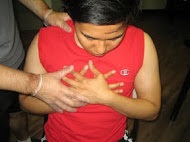Overview Of Asthma
- Asthma is a long-standing illness that can cause a cough, wheeziness and breathing difficulty. The severity of the symptoms differs from individual to individual. Asthma can be managed well in most individuals.
- If you are diagnosed with asthma as a kid, the symptoms might fade during your teen years.
- Though, asthma can come back later when you are older. If symptoms of asthma are modest to severe, it is more likely that the asthma will continue or return later in life.
- Though, asthma does not only start in young individuals and can progress at any age.
- The reason for asthma is not completely understood. You are more likely to have asthma if your mom or dad has the condition.
Symptoms Of Asthma

- Feeling out of breath;
- A taut chest, like a band narrowing around it;
- Wheeziness, which makes a shrieking sound when you take in air;
- Coughing;
- Attacks initiated by exercise, contact to allergens and other causes.
You might have more than one of these symptoms. Symptoms that get worse at night or when exercising can mean that your asthma is getting worse. Chat to your GP about this.
If Your Asthma Gets Worse…
When your symptoms get considerably worse, this is identified as an asthma attack. A serious asthma attack generally develops gradually. Though, for some individuals, asthma symptoms can get worse rapidly.
You can see that an asthma attack is emerging when:
- You become more breathless and the chest becomes very tight;
- The reliever inhaler is ineffective.
Related Video On Asthma
